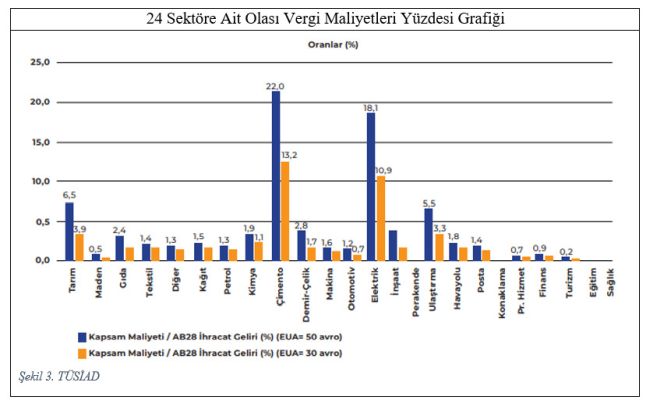For almost every industry, sustainability involves adopting environmentally and socially responsible practices throughout a company's operations, from sourcing and production to sales and customer engagement. This includes reducing carbon emissions, promoting fair labor practices, supporting the product lifecycle, leveraging blockchain and digital systems, ensuring supply chain transparency, and maintaining ethical governance standards. Therefore, environmental sustainability policies need to be integrated into internal company rules, and, in particular, stakeholders in every sector need to take more responsibility for ESG practices. Especially as customers become more conscious about sustainability in their purchasing processes, they want companies to be more accountable. This situation also puts pressure on the markets due to investor expectations. As analysts begin to score companies on their ESG contributions, the London Stock Exchange has unveiled plans for a Voluntary Carbon Market (VCM) to make it easier for companies to meet their net-zero targets. The US Securities and Exchange Commission (SEC) and the EU Sustainable Finance Disclosure Regulation (SFDR) require publicly traded companies to report their ESG performance by January 2024. According to the Green Deal and other regulations adopted by the European Commission in 2020, it aims to reduce emissions by 55% by 2030 and to achieve a net-zero economic transformation by 2050. The EU Taxonomy Regulation reveals which activities and transactions of companies are compatible with the Green Deal and net-zero targets.activities and transactions of companies are compatible with the Green Deal and net-zero targets.
The Border Carbon Regulation Mechanism (SKDM), which envisages that the costs determined according to the carbon intensity of the production of commercial products within the EU borders will be applied as taxes to third countries for goods imported into the EU countries, is of great importance. Per the SKDM, it regulates the taxation of companies that reach certain thresholds in the production process for products exported to the EU, such as iron, steel, cement, aluminum, fertilizer, hydrogen, and electricity, which may be at risk of carbon leakage, according to the amount of greenhouse gas tons released, starting from 2026. According to TUSIAD data, in scenarios where the carbon price is 30 €/ton, it is predicted that Turkey will pay 1,074 billion € annually to the EU, and if it is 50 €/ton, the figure will be approximately 1,777 billion €.

The SKDM transition process will start in the EU on October 1,
2023, and is expected to last until October 31, 2023. During this
period, importers in the EU are obliged to report emissions every
three months. As of December 31, 2024, companies must obtain
"SKDM declarant" status to import products within the
scope. It is expected that the financial obligations will be in the
regulation, which is likely to come into force permanently on
January 1, 2026; the situation of exporters in non-EU countries and
countries that do not implement the Emission Trading System (ETS)
and other additional obligations will be clarified over time.
As of January 1, 2026, importers established in the EU must
declare each year the number of products imported into the EU in
the previous year and their embodied greenhouse gas emissions.
What should Turkish companies do?
Although SKDM imposes a non-financial reporting obligation on importing companies in the EU, these companies will request that non-EU companies conduct a study on the products supplied in their supply chains. For this reason, exporting companies in Turkey must first complete a detailed analysis of whether the products subject to export are within the Customs Tariff Statistics Position (GTİP) scope. If the product exported by Turkish companies is in this category, a report must be prepared for importing companies in the EU, specifying carbon footprint measurement and direct and indirect emission amounts, as stipulated in the SKDM.
Since it is anticipated that financial reporting and exporting companies will also be included in the regulation, which will come into force permanently on January 1, 2026, It is vital for Turkish exporting companies operating in sectors such as iron, steel, cement, aluminium, fertilizer, hydrogen, and electricity to start preparations to fulfill their obligations under the regulation and to follow the additional obligations that will be foreseen in the process.
Originally published by 26 August., 2023
The content of this article is intended to provide a general guide to the subject matter. Specialist advice should be sought about your specific circumstances.

